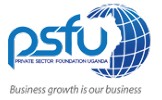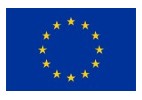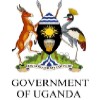Micro, Small, and Medium Enterprises (MSMEs) play a crucial role in driving economic growth, fostering innovation, and creating employment opportunities in countries around the world.
In Uganda, these enterprises are the backbone of the economy, contributing significantly to the nation’s GDP and providing livelihoods for millions of people. On MSME Day, 27th June 2023, a gathering of European Union representatives, entrepreneurs, and Government officials as well as stakeholders took place at the Golf Course Hotel to celebrate the achievements of MSMEs and address the challenges they face while exploring avenues for their integration into the regional and global marketplace.
The event, organized by the Sustainable Business for Uganda (SB4U) platform, served as a platform for knowledge sharing, networking, and collaboration. Caroline Adriaensen, the European Union representative, commended the organisers for their efforts in highlighting the importance of MSMEs. She underscored the role of these enterprises in job creation, poverty reduction, and community development. Adriaensen shared eye-opening statistics, revealing that there are over 1.1 million MSMEs in Uganda, with microenterprises accounting for 94% of the total. These businesses are responsible for 80% of the country’s GDP and constitute 90% of the private sector.
The European Union representative emphasized the need to strengthen the MSME ecosystem in Uganda and address the challenges faced by these businesses. Access to affordable financing was identified as a significant hurdle, along with difficulties in matching supply and demand. Adriaensen recognized the resilience displayed by MSMEs during the pandemic but stressed the importance of finding sustainable solutions to these challenges. She announced the upcoming launch of a new program focused on trade facilitation and promotion in Uganda, which aims to bring together various stakeholders to support MSMEs in accessing regional and international markets.
Angella Bageine, a member of the Private Sector Foundation Uganda (PSFU) Board, delivered a compelling and motivational keynote speech that shed light on the growth trajectory and obstacles faced by MSMEs. Bageine highlighted key indicators for evaluating MSME growth, including employee count, capital investment, and annual sales turnover. She emphasized the need for businesses to align their growth aspirations with their capabilities and urged them to adopt best practices to position themselves for success.
Bageine conducted a SWOT analysis of MSMEs in Uganda. Among the strengths and opportunities were the country’s rich natural resources, a stable macroeconomic environment, and a supportive legal framework. However, weaknesses such as limited access to affordable financing, informality within the sector, and inadequate technical and business skills posed significant challenges. Bageine called for a paradigm shift, urging MSMEs to embrace quality standards, improve business practices, maintain proper records, and actively seek opportunities within the existing systems.
During the first panel session of the event, titled “Improving the Ugandan MSME Ecosystem”, several prominent figures in the entrepreneurial landscape shared their insights. Hashim Mulangwa from SB4U, Charles Ocici from Enterprise Uganda, Ham Namakajjo from the Uganda Entrepreneurial Ecosystem Initiative (UEEI), and Maxima Nsimenta, the Founder of Livara, provided valuable perspectives on what a vibrant MSME ecosystem looks like and how Uganda can build a better system to support entrepreneurs.
Ham Namakajjo emphasised that an entrepreneurial MSME system is a complex interconnected network of actors, support organizations, and resources working towards the common goal of supporting entrepreneurs. He mentioned the importance of addressing challenges and issues in various domains such as policy, enabling environments, finances, and culture. Namakajjo stressed the interdependency within the ecosystem, where changes in one area can have a ripple effect on the entire system. He highlighted low connectivity between the government and private sectors, the lack of specialisation among service providers, duplication of efforts, and the absence of comprehensive ecosystem data as areas that need attention.
Charles Ocici underscored the significance of a thriving MSME ecosystem, where businesses can support one another and all players within the system can win. He emphasised the need to work on challenges faced by businesses through the implementation of policies and systems that facilitate growth. Ocici called for broadening the conversation on the ecosystem and facilitating entrepreneurs’ growth beyond temporary interventions. He stressed the importance of training entrepreneurs in critical areas such as human resources, marketing, and customer service, and equipping them with the skills to manage the financing they receive.
Maxima Nsimenta shared her experience as the founder of Livara, emphasizing the importance of purpose-driven businesses and intentional relationship building at every stage of growth. She highlighted the significance of systems and structures in businesses, such as formalising processes and building trust with stakeholders. Nsimenta stressed the value of training employees within businesses and being open to talent and ideas from different markets. She called for better knowledge sharing, mentorship, and support for entrepreneurs to ensure long-term success.
The second panel session, “Market and Product Development,” featured panelists including Dev Chamroo from SB4U, Commissioner Emmanuel Mutahunga (represented by Richard), and Allan Ssenyondwa. The panel discussed ways to improve the market access of Ugandan products to the European Union (EU) market.
Dev Chamroo emphasised the role of the government in creating systems, frameworks, and agreements to enable Ugandan products to reach regional and global markets. He encouraged businesses to focus on producing what customers want and to choose markets based on economic intelligence and organisational support.
Richard, representing Commissioner Emmanuel Mutahunga, discussed the opportunities and challenges of Ugandan MSMEs exporting to the EU. As an opportunity, he highlighted the existing framework of cooperation between Uganda and the EU, such as the “Everything but arms” agreement, which provides duty-free and quota-free access for Ugandan products. He shared about multiple resources and simplified procedures that the Ugandan government has developed and freely availed to support Ugandan entrepreneurs with knowledge about International Trade. One such way is through the Uganda Trade Portal that has all the necessary information with steps shared to ensure success, which cuts on time needed to get information. Many procedures needed to facilitate trade are also easily available to the entrepreneur easily online through this portal. A second avenue is through the Uganda Electronic Single Window (E Single Window). This is allows the entrepreneur put together all their documentation and clear their goods online as well as make payment through URA.
During the third panel session, the first part focused on Access to Trade Finance, with Ronald Kasasa, Head of Business Banking at DFCU, as the speaker. Kasasa highlighted DFCU’s interest in MSMEs and their significant contributions to Uganda’s economy, including their role in manufacturing output, GDP, and employment. He discussed the challenges faced by SMEs, such as government policies, high competition, undercapitalisation, limited access to markets, and lack of business skills.
DFCU offered solutions to address these challenges. They aimed to enhance knowledge and skills through capacity-building programs. They also collaborated with organisations to provide affordable funding options and offered solutions such as guarantees and letters of credit to facilitate business transactions. Additionally, DFCU emphasized the importance of digitalization in providing convenient solutions for the entrepreneurs.
In the second part of this session, Fred Kato, Segment SME at Equity Bank, discussed Ecosystem financing. He explained that businesses often faced challenges accessing working capital due to a lack of collateral. In response, Equity Bank developed a solution called ecosystem financing, which considers all players in the ecosystem, including suppliers, anchors, and distributors. This solution includes offerings like Eazzy Supplier Financing and Eazzy Stock Financing.
Paul Daka, Head of Trade Finance at Equity Bank, highlighted that the trade product solutions created with MSMEs and the ecosystem in mind. Equity Bank collaborates with risk-sharing partners to ensure a steady supply of products and support for MSMEs in accessing trade finance.
In the fourth and final panel session, three entrepreneurs shared their success stories, providing valuable insights and highlighting key factors that contributed to their achievements as business owners.
Judith Bakirya, an agro-ecology entrepreneur, emphasized the need to observe standards in Uganda. She also highlighted that even though Uganda is extensively resource rich, 70% of food and 90% of medicine are imported. She attributed her success to three factors: passion, the ability to innovate, and partnerships that fostered growth.
Brian Yesigye, the founder of Bravo Shoes, made an important observation about funding in Uganda, stating that often businesses are funded rather than entrepreneurs. He emphasized the importance of building brands rather than just businesses, as brands have greater longevity. His growth was driven by the idea of service. Growing a brand centred on this instead of just a business ensured long-term success.
The testimonial from Anthony Natif, founder of Guardian Pharmacy, highlighted several key points. He emphasised the power of community and the importance of partnerships in driving success. Feasibility studies and market knowledge were also emphasized as critical factors. Natif mentioned the challenges faced due to unfavourable market conditions, such as stringent demands from financiers like banks, which hindered access to financing for businesses. He also touched upon the culture in Uganda, where individuals tend to start their own ventures instead of pooling resources together for collective investment options like the Ugandan stock exchange. Natif’s drive to provide solutions for his community was a key motivator for his success.
The MSME Day 2023 proved to be a remarkable platform for dialogue, knowledge sharing, and the identification of actionable solutions. The discussions and insights shared throughout the day are set to influence the sector positively. Access to finance was a recurring theme, with participants highlighting the need for tailored financial products, improved credit accessibility, and enhanced financial literacy programs. The importance of technology adoption and digitalisation was emphasised as a driver to enhance productivity, improve market access, and facilitate e-commerce for MSMEs.
The event underscored the commitment of stakeholders, both public and private, to create an enabling environment and support the growth of MSMEs. As Uganda moves forward, it is evident that by addressing challenges, building strong ecosystems, and fostering collaboration, the MSME sector will continue to thrive and continue creating jobs, driving economic growth, and transforming communities for the better.




